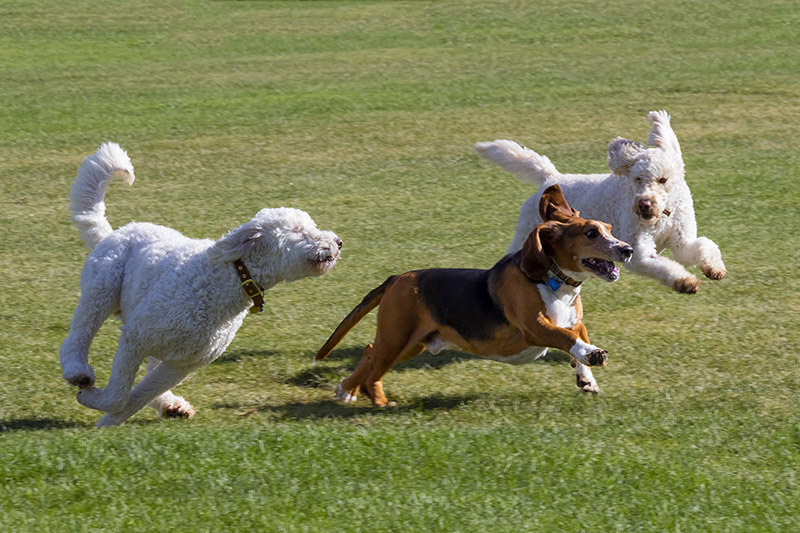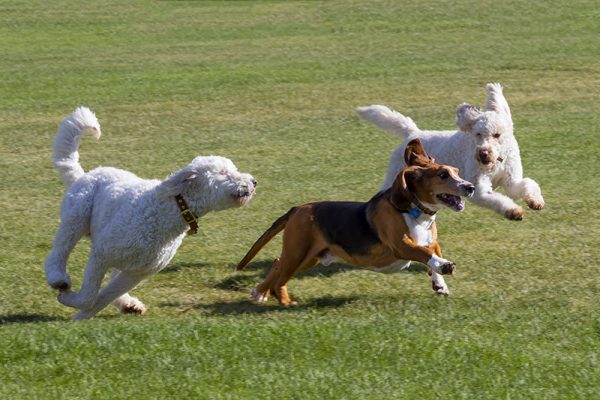Not all dogs are friendly and happy-go-lucky, and some can be outright dangerous to you or your dog. Off-leash dogs can attack for seemingly no reason, and their first target could be your four-legged friend! If this has ever happened to you and you didn’t know what to do, or if you want to be prepared in case it ever does happen, you’re on the right page. Join us below as we discuss the best methods to protect your dog and yourself from an off-leash dog behaving aggressively.
The 8 Ways on How to Stop an Off-Leash Dog From Attacking Your Dog
1. Remain Calm & Confident
As soon as you notice an off-leash dog, stay calm, and whatever you do, don’t raise your voice or make any sudden moves, as either could be construed as a threat. Shrieking or screaming can also cause a dog to become more excited and worked up, so try not to do either of these if you can. If you have enough distance, the best option might be to move off in a different direction, but that’s not always possible.
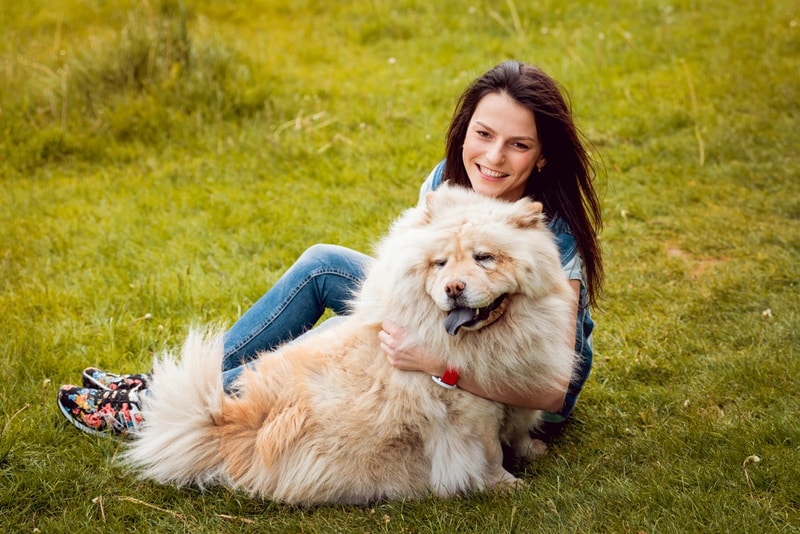
2. Learn Dog Body Language
A curious, friendly stray dog looking to make friends looks very different from a dog that wants a fight. A relaxed posture and wagging tail are the biggest signs that a dog is actually friendly, but a wagging tail does not always guarantee a friendly encounter, as some dogs will wag their tail if they are feeling assertive or unsure. Dogs typically recognize friendly behavior on sight if they’re socialized well. However, be on the lookout for the following aggressive body language signs so you can get your dog out of the situation ASAP.
- Bared teeth
- Low growling
- Raised hackles
- Intense staring
- Body stiffness
- Crouching or lunging
- Snapping at the air in your direction
3. Create Distance From the Dog
If possible, it’s best to get out of sight of the off-leash dog. If you can create a barrier with a bush, car, or garbage can, that is preferable to letting the dog come right up to you. If not, adopt a solid stance between your dog and the approaching dog with your hands out like a traffic cop. Say “no” in a clear but not raised voice. Even if the dog doesn’t understand, they should get the message from your body language.
If the dog starts heading toward you, do not run, as this could entice them to chase you. You can start to say “Go home!” or “Sit!” in a deep voice and stomp your foot, or even holler at the owners if you see them nearby. Do not hit or kick the dog, as this could cause them to be aggressive toward you.
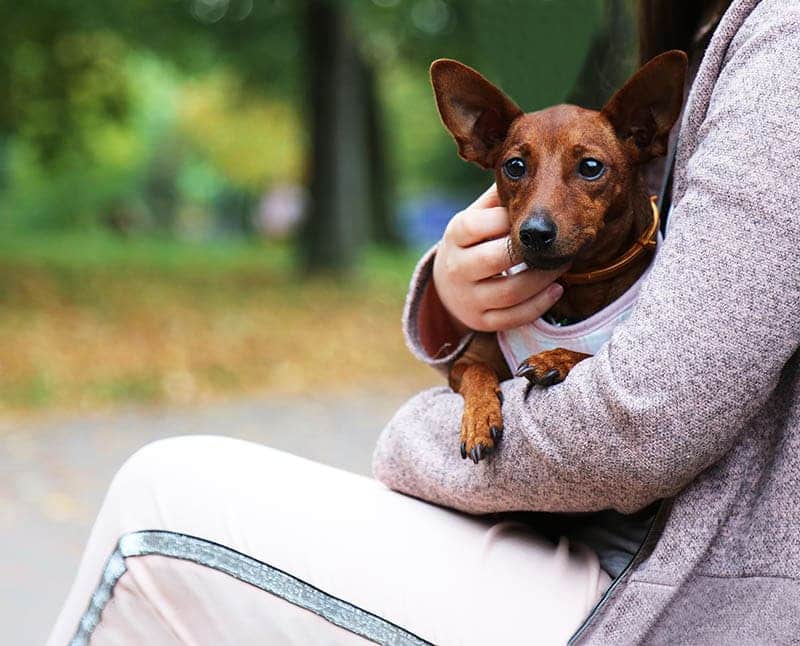
4. Throw Treats or a Toy as a Distraction
A crinkly bag of treats or chips could be your ticket to escaping a potentially hostile dog. Most dogs are conditioned to associate crinkly bags with treats, and scattering treats in the opposite direction you want to go is an effective tactic to get away. A toy that makes noise, like a squeaky ball, may also distract the dog, but it probably won’t be as effective as food. However, both are items you likely already have on hand while out and about with your dog.
5. Swing a Leash
If you have another leash handy, extend it with your free hand and swing it loosely toward the other dog. Hopefully, it will distract or dissuade the dog from approaching you with threatening body language. If you don’t have another leash, you can use a stick on the ground or even just put yourself between the dogs while slowly backing away. Have a purse or sports bag? That works too. Regardless, the goal here is to create space and keep the dog from closing it.
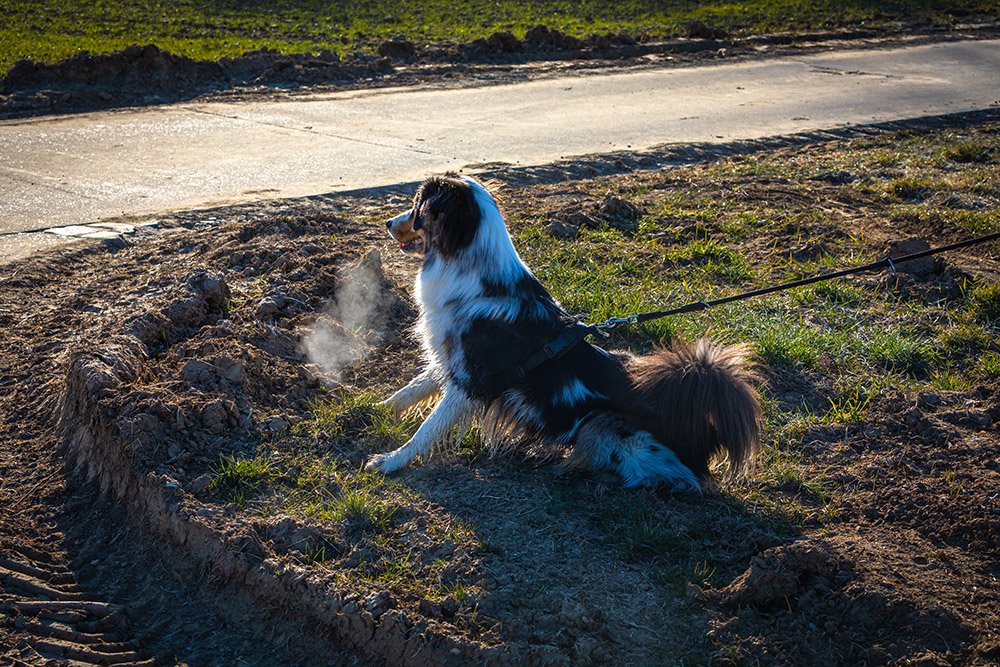
6. Get an Air Horn or Umbrella
Dogs dislike loud, sudden noises like the siren of an air horn, so it may be worth carrying one with you if you encounter off-leash dogs regularly. You can find small, portable models in maritime or outdoor stores. Simply sound the air horn when an off-leash dog approaches in a threatening manner and they’ll most likely run. This also alerts others in the area to the possibility of a fight breaking out. If the dog keeps approaching, hopefully others will have heard the horn and can help shoo the dog away.
An umbrella could also work in this case, as it is something that creates a barrier between you and the other dog and is something that you can quickly snap open to use as a shield.
7. Train Your Dog for Safety
Untrained dogs will be more reactive if an off-leash dog approaches with negative body language, but all dogs will sense it. To help your dog be more prepared for uncertain situations like this, we recommend teaching basic obedience commands like “sit,” “stay,” and “heel.” These keep your dog in place while you manage the situation. However, remember that you should not turn your back toward the dog. Back away slowly while facing them in order to try to get away.
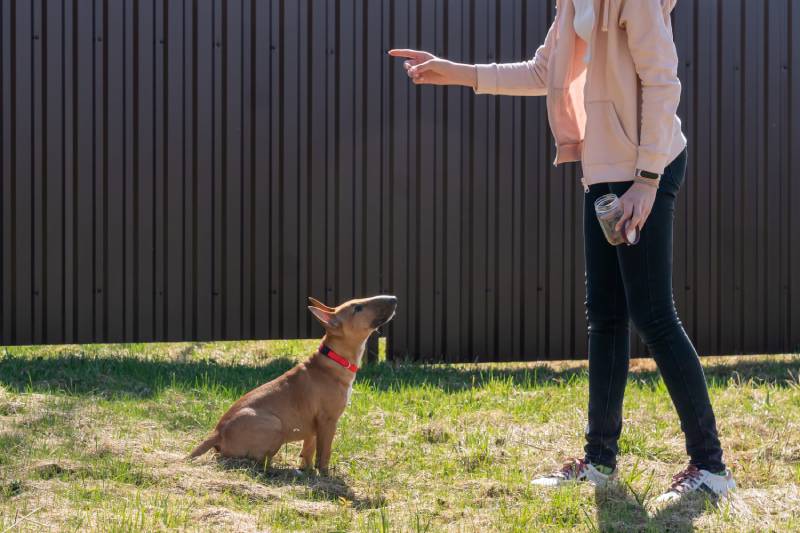
8. Remove Your Dog From the Situation as Soon as You Have the Chance
No matter your tactic of choice, you should strive to create space between the other dog and your dog while looking for an opening to escape. If your air horn or scattered treats distract the dog for a second, pick your dog up if they’re small enough or lead them away quickly on a short leash. If necessary, you can follow up with animal control or authorities. If your dog sustained any injuries, immediately take them to a trusted vet for diagnosis and treatment.

Conclusion
It’s always scary when a growling dog approaches you and your dog on a walk, but stay calm and analyze the situation. First, make sure the dog isn’t displaying threatening behavior and try to create distance with whatever means you have at your disposal. Then, physically remove your dog as soon as the opportunity presents itself, and be sure to get them checked out by a vet as soon as possible if there was an altercation between the two.
Featured Image Credit: Images by Dr. Alan Lipkin, Shutterstock
Contents
- The 8 Ways on How to Stop an Off-Leash Dog From Attacking Your Dog
- 1. Remain Calm & Confident
- 2. Learn Dog Body Language
- 3. Create Distance From the Dog
- 4. Throw Treats or a Toy as a Distraction
- 5. Swing a Leash
- 6. Get an Air Horn or Umbrella
- 7. Train Your Dog for Safety
- 8. Remove Your Dog From the Situation as Soon as You Have the Chance
- Conclusion

